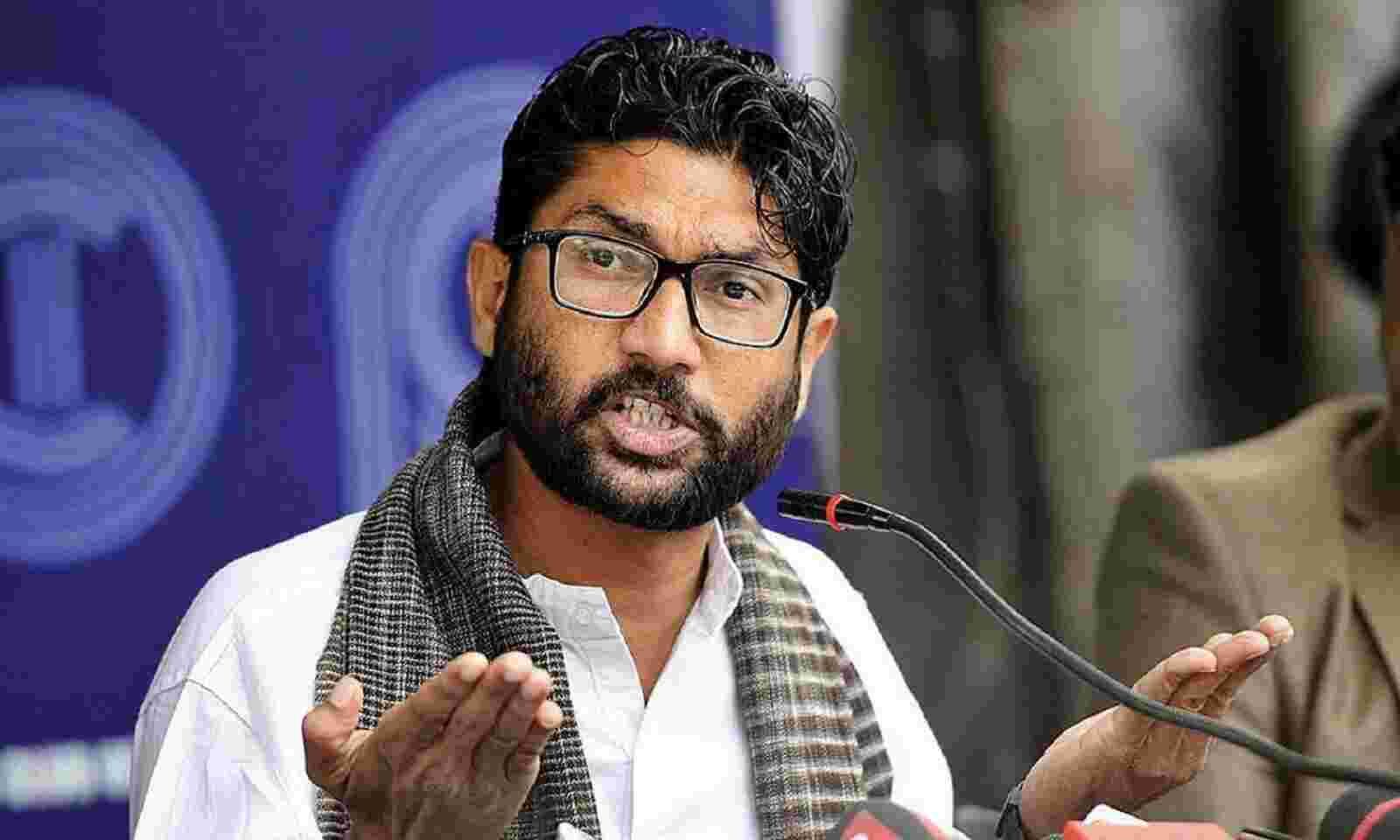Victim of law?

Jignesh Mevani — an independent MLA from Vadgam constituency of the BJP-ruled Gujarat — was arrested, released on bail and immediately rearrested in another BJP-ruled state of Assam on various charges. Political analysts see the turn of events in the context of upcoming Gujarat Assembly elections. It will be interesting to watch how long Jignesh will have to stay away from the political environment of Gujarat and what impact it will have on the election prospects. Jignesh Mevani emerged in the political firmament of Gujarat in 2017. Since then, he has been a vocal critic of the Bharatiya Janata Party (BJP) and the Rashtriya Swayamsevak Sangh (RSS). Lately, though remaining an independent legislator, Mevani has pledged support for the Congress and is seen as a dynamic young face for the party. He comes from the Dalit community that constitutes just around seven per cent of the total electorate in Gujarat but his influence ranges among youths across not just Gujarat but also other states. Mevani is potentially being seen by some as a significant political force in the upcoming Gujarat Assembly polls. In fact, allegations are being made around the involvement of the BJP in the entire episode. The BJP has, however, refuted all such allegations by distancing the party from the issue. One may be forced to wonder how significant Jignesh Mevani has been as an adversary to the BJP in its stronghold Gujarat. Certainly, not enough to dislodge the party from power in the immediate future. But the rise of Mevani, in the long term, could lead to greater spread of Leftist ideology in the state, which is presently negligible. The far-right BJP, known for long-term political planning, must certainly be trying to tackle the ideologically opposite faction. But this doesn't surely indicate the BJP's involvement in the case. In fact, the current turn of events may even provide a political mileage to Jignesh Mevani if he manages to return to the political battlefield ahead of elections. How the ongoing developments will impact the prospects of the Congress is another important aspect. The flourishing ties between Mevani and Congress made headlines prior to his arrests. How the Congress will respond to the crisis situation of Mevani will determine the road ahead for collaboration. Congress thus far has been quite calculative in its response, though clearly taking the stand for Mevani. Apart from all these political equations, what is clearly evident is an incident of another individual falling prey to inconsistencies of state policing and the justice system. Based on a complaint filed in Kokrajhar district of Assam, the state police lifted an MLA from another state on a charge in which the local judiciary hardly found any merit. Surprisingly, minutes after being granted bail, the MLA was slapped with the sections 323, 353 and 354 of Indian Penal Code in Barpeta district of the same state. The charges against him include assaulting a woman police officer midway in Barpeta while being taken to Kokrajhar from Guwahati. Similar charges are also slapped from Goalpara District. It is intriguing how an MLA from the western Indian state of Gujarat is embroiled in a series of legal battles in the extreme east of the nation in Assam in just a span of a few days! While the cases filed in Barpeta and Goalpara are yet to be investigated, in the Kokrajhar case, Mevani can certainly be called a victim of India's flawed justice system which hardly offers compensatory provisions for undue subjection of the accused to the rigours of the system. This leaves glaring loopholes, allowing the law of the land to be used as a weapon of subjugation in certain cases. In a country that strictly follows the legislation around defamation, sadly, there is hardly any provision to prevent denting of an individual's dignity via state machinery. The arrest, undue treatment and then acquittal of Jignesh Mevani in the Modi-Godse tweet case once again point towards the inadequacy of India's legal justice system that allows the law to be misused, in some instances, as a tool for imparting inconvenience, rather than delivering justice.



